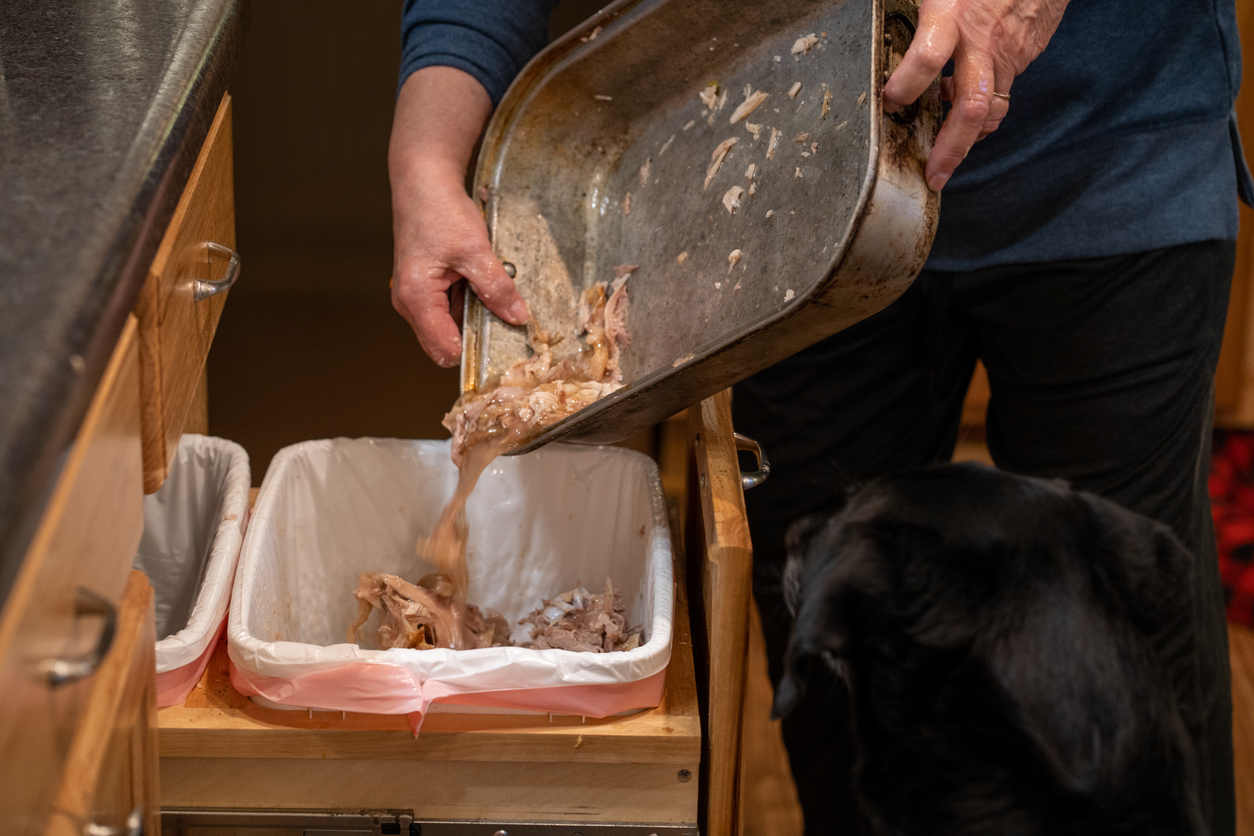Thanksgiving in the US is as much a feast for the trash bin as it is for extended family, according to new data from food waste think tank ReFED. But there are practical ways to curb that waste, Minnie Ringland, manager, climate & insights at the organization, suggests to AgFunderNews.
ReFED estimates 316 million pounds of food going to waste during this year’s holiday. The number represents more than $556 million in groceries thrown out in a single day, or the equivalent of providing five meals to each of the 47.4 million individuals experiencing food insecurity in US.
More than half (58%) of all that food will be just two items: turkey and milk.
The amount of wasted turkey alone is equivalent to discarding about 8.2 million whole turkeys, or 4% percent of all turkeys produced in the US each year.
Along with the Super Bowl and Fourth of July, Thanksgiving is one of the country’s major holidays that generates food waste, notes Ringland, which makes sense given the food-centric nature of the day.
Nor is the level of waste just the food. As ReFED notes, water, energy, labor, and land required to make the food also go to waste.
For example, “About 105 billion gallons of water was used to produce the food that will be wasted this Thanksgiving, enough for each person in the US to take 18 showers.”
Household trash (food or otherwise) can increase 25% between Thanksgiving and New Year’s Day, according to the United States Environmental Protection Agency.
‘Little evidence’ that high food prices impact holiday food waste
Theoretically, high food prices and inflation should mean less buying and therefore less food waste, but Ringland says there’s “very little evidence to show this bears out in reality.”
Instead, she notes, research shows that consumers react to high food prices by switching to lower-cost options, such as private-label brands, and changing how much they cook at home versus eating out.
“Even if we did expect to see the influence of high food prices on consumer food waste, I’d say that Thanksgiving as an isolated day may not be the occasion, since my gut feeling is that decisions to toss food have more to do with laziness/lack of storage/holiday overwhelm rather than logical planning/prepping,” she notes.
“We hope that public awareness is growing, so that consumers are more conscientious about how much perfectly good food they throw out – and high prices should make the link more compelling. However, as we saw inflation trail off this year, it looks like consumers are returning to restaurants – which may be an indication that other responses to food price will also fall off.”
Tips to curb Thanksgiving food waste
ReFED offers a few practical tips in a blog post about keeping food waste at bay, including planning ahead, making a strategy for leftovers, and making room in the freezer for extra food.
Ringland serves up a few additional tips for AgFunderNews readers:
Plan a potluck. My Thanksgivings tend to be potluck style, so it becomes really helpful to share ahead of time what everyone is planning to bring and making sure there won’t be five different types of potatoes (unless you’re into that), etc. Making sure there are light/fresh dishes like salad or fruit can help balance out the richness of the rest of the meal and maintain appetites – but only if you’re sure that people in your party will eat these.
Skip the apps. Consider not bothering with the appetizer course. I personally can’t resist some cheese and crackers, so I find myself descending on the charcuterie after “saving my appetite” all day and then am already full when we’re sitting down to dinner.
Put leftovers to work. Lastly, I’m almost more excited about the prospect of Thanksgiving leftovers than the dinner itself. I’ll happily eat the same meal for days after, but for those who get bored more quickly, there are countless recipes online for how to creatively repurpose those dishes into breakfast, lunch, or dinner. And as you’re working through the leftovers, remember that date labels aren’t currently designed to help consumers judge safety, so use your senses and common sense rather than tossing items based on the package date.





